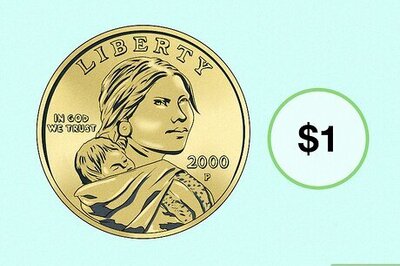
views
Singapore: Oil slipped further on Friday, after a nearly $5 plunge a day ago, as China's move to raise fuel prices raised concerns that demand in the world's second-largest oil consumer will fall.
US July crude, which expires later in the day, fell 66 cents to $131.27 a barrel by 0136 GMT. London Brent fell 52 cents to $131.48. China unexpectedly raised retail gasoline and diesel prices by up to 18 per cent on Thursday, its first hike in eight months, as the government bowed to the around $40 a barrel increase in crude prices since the last hike in November.
China's rapid demand growth was one of the catalysts for oil's almost seven-fold surge from $20 six years ago to a record high of nearly $140 a barrel earlier this week.
"Allowing an increase in the controlled fuel prices in China may temper growth in fuel demand in China, helping moderate demand-based pressure on oil prices," David Moore, an analyst with Commonwealth Bank of Australia, said in a research note.
High fuel costs have already shown signs of denting demand in consumers such as the United States and Britain. Americans cut down on the number of miles they drove for the sixth straight month in April, resulting in the biggest six-month decline since the oil shock of the 1979-80 Iranian revolution.
But some analysts said Beijing's move might instead bolster consumption by encouraging healthier supply at the pumps, which had faced long queues and rationing as refiners cut back on production to limit hefty losses made by selling discounted fuel.
"Don't expect much demand destruction...certainly not enough to outweigh the increase in output from improved economics," said Trevor Houser, analyst at Rhodium Group in New York.
Supply concerns in Nigeria provided some support, after militants in speedboats attacked Royal Dutch Shell's main 220,000-barrel-per-day Bongas offshore facility in Nigeria and cut oil output at the world's eighth-largest oil producer by a tenth.
Shell said it was too soon to say how long output at the deepwater installation would be shut down.
OPEC member Nigeria is already producing about 20 percent below its potential due to sabotage by militants in the southern Niger Delta oil hub. In Venezuela, President Hugo Chavez threatened to stop selling oil to European countries if they apply a new ruling on illegal immigrants that allows them to be detained for up to 18 months and face a re-entry ban of up to five years.
"Venezuelan oil will not go to the countries that apply this shameful directive. I'll say it now, Venezuelan oil will not go," Chavez said. The comment came after the country said it would not attend the emergency meeting on Sunday in
Saudi Arabia between consumers and producers to discuss rising oil prices.
Saudi Arabia, the world's top exporter, is hiking output to help bring down prices, which have jumped nearly 40 percent this year and caused protests around the globe.
Venezuela insisted that supply is not to be blamed for soaring crude prices. Goldman Sachs raised its oil price forecast further on expectations of continued supply tightness, predicting Brent oil would average $117 a barrel this year, up from its previous estimate of $108. The bank forecast Brent crude prices will average $140 next year.



















Comments
0 comment